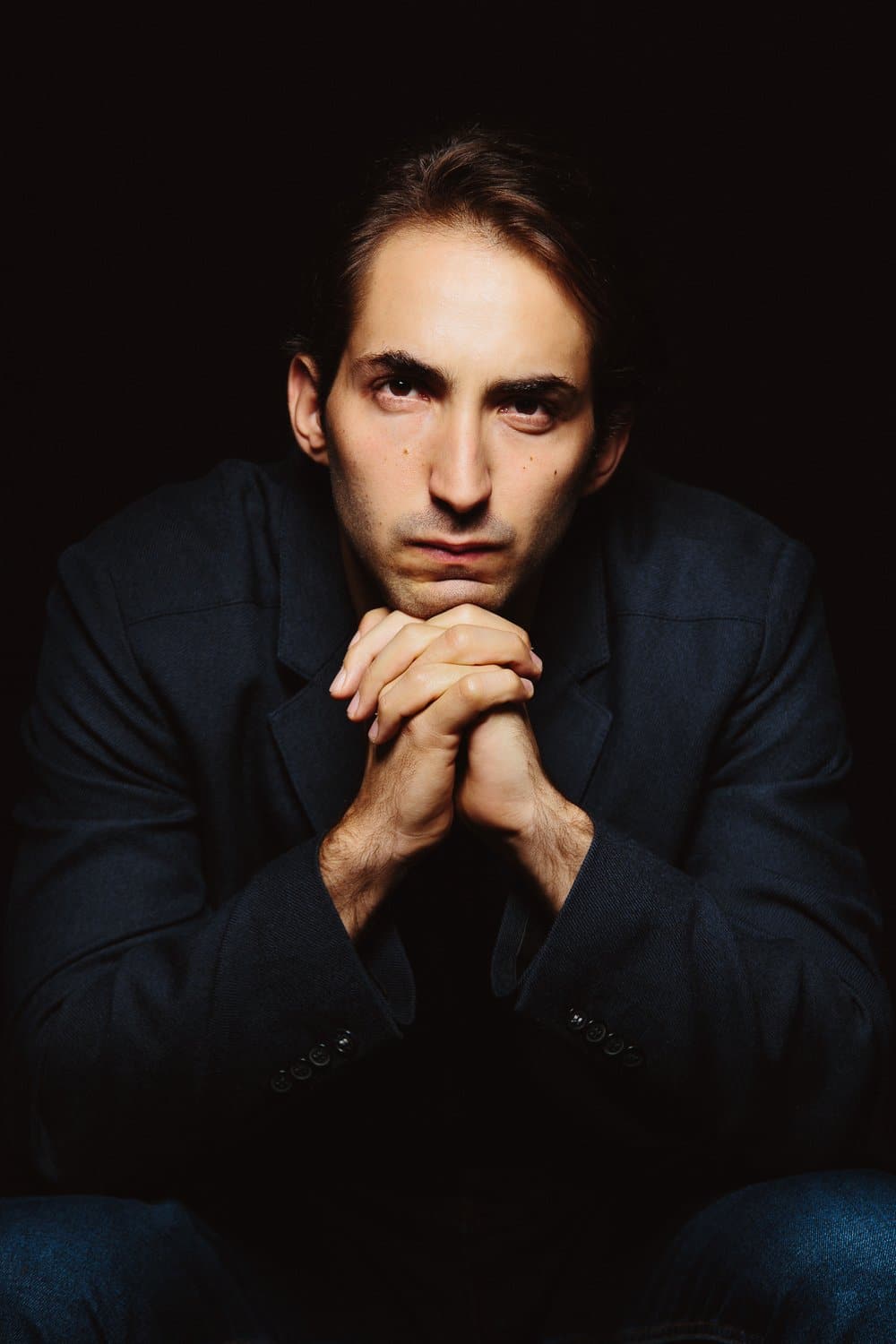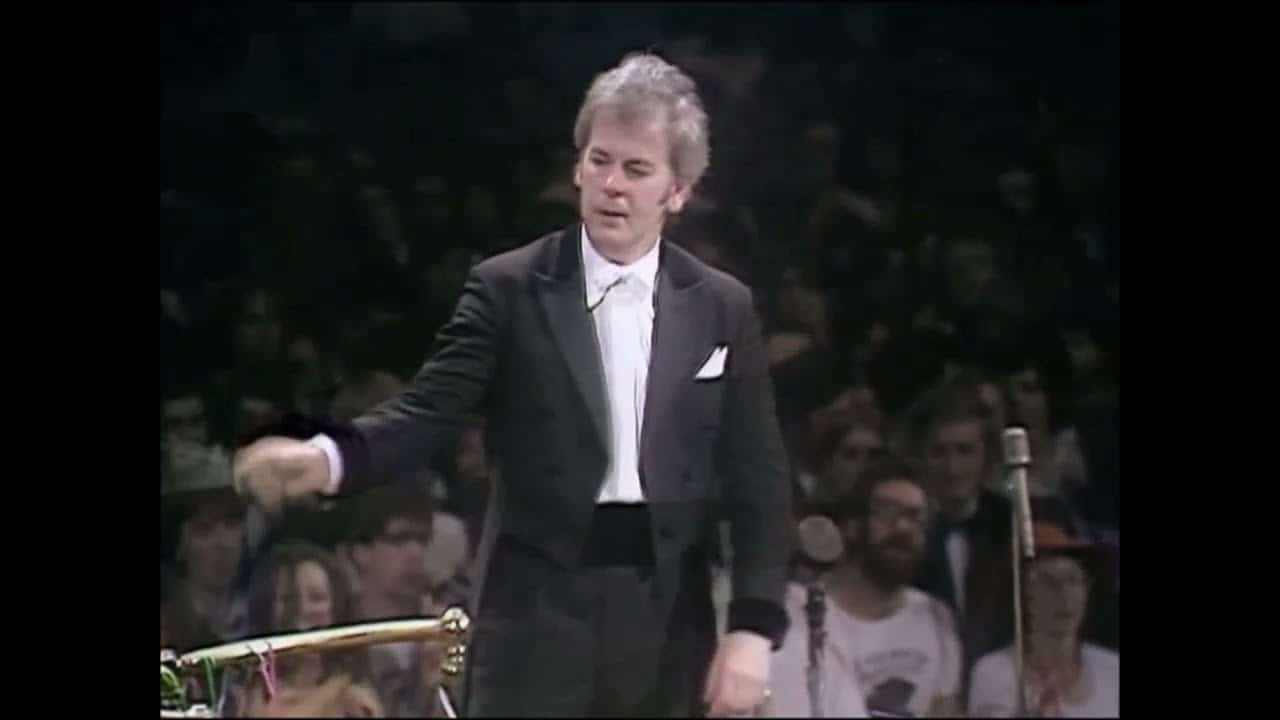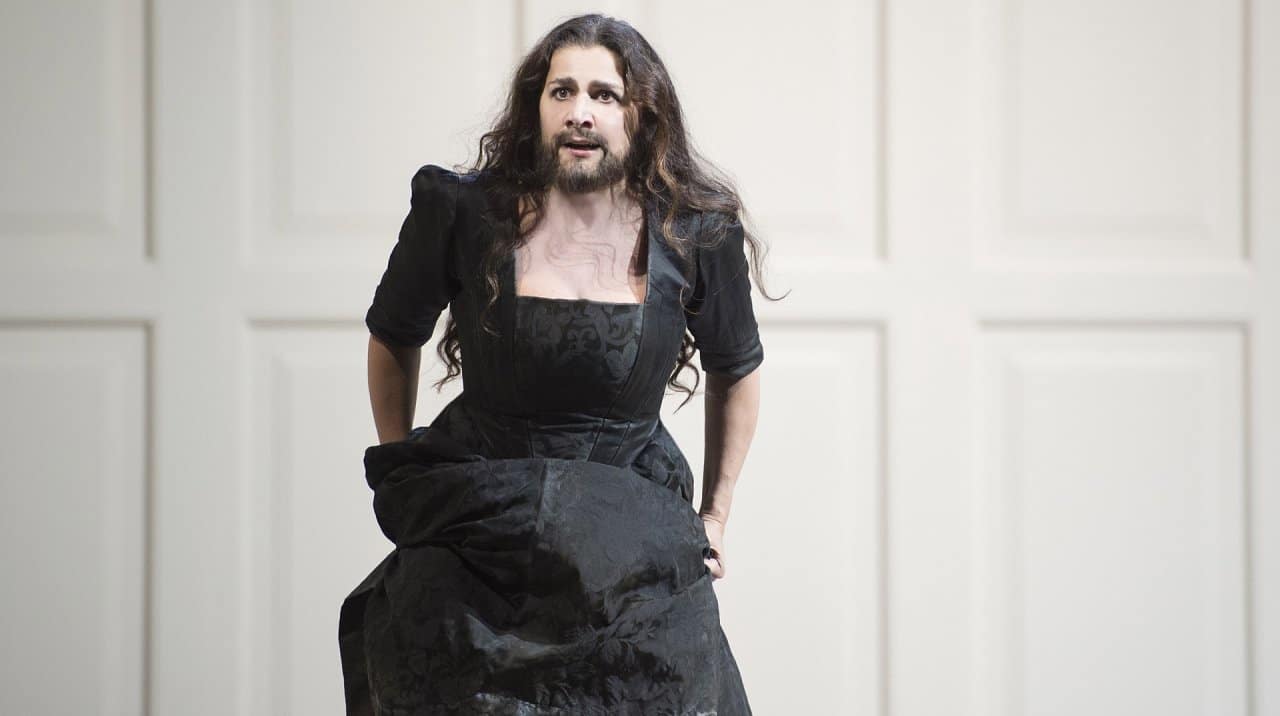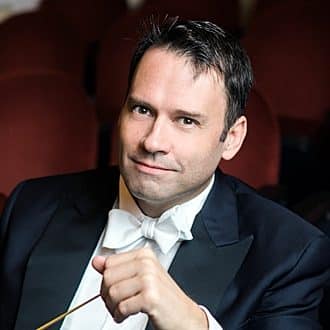New orchestra will play 50% world premieres
OrchestrasThe German-based Israeli conductor Yoel Gamzou is about to launch an orchestra, oneMusic, which will spend half of its time on new work.
oneMusic starts on 15 and 16 September 2023 with a residency at the Beethovenfest in Bonn.
The orchestra is composed of musicians from Zurich Opera, Bavarian State Orchestra, Staatskapelle Berlin, Royal Liverpool Philharmonic, the LSO, Copenhagen Philharmonic, Lucerne Symphony Orchestra, Hamburg Philharmonic and the Vienna Tonkünstler Orchestra.
Gamzou was, until last year, GMD at Theater Bremen.






I hope the hall is at least 50% filled when they do this.
… and perhaps attract 50% of the hoped-for audience as a result.
So it’s a pick-up orchestra, or perhaps I should say, another pick-up orchestra. The problem with premieres, it seems to me, is that they don’t often get repeat performances.
But given the calibre of pick-up players, this will be one top-notch orchestra most likely. And yes, most of the works premiered will be receiving their first and last performances on the same evening.
Mr. Birkin, you’ve just expressed one of my pet peeves. New music needs to be repeated many times over so that we can decide if we really dislike or like it as much as believed we did at its first hearing.
Sure. But we have to remember that the ‘canon’ of repertoire we get from the 17th-20th centuries is only a tiny substrate of the music premiered back then. 99% of it disappeared or is hidden in archives, sometimes fairly, sometimes unfairly. Look at any disc of baroque concertos, where whole ensembles ‘discover’ composers and works – they’re not all stars, and some of them certainly don’t merit a second recording or performance.
It’s very normal for most of the premieres to be one-offs (or two-offs). But you have to produce volume to get the gems. And some will be forgotten unfairly, and may become the hidden gems rediscovered 50 years from now, or defended by very niche groups somewhere.
In all honesty, please stop complaining. Do you think the 19th century orchestras only premiered the music of the now great masters of the past? Gamzou’s orchestra will do what every orchestra should be doing. Do not be afraid of new music, it is not going to bite you; and if you cannot cope with it, then wait until it is time for the traditional repertoire part of the concert, but do not deprive living composers of their profession and livelihood.
OneEvery will be staying at oneMotel.
Most of them shouldn’t. The idea that just because one is a musician, one “should” play new music, is as onerous and silly as the usual attitude that doing so also represents some big accomplishment or noble work. Facts: outside of the moldies at Donaueschingen, a few hipsters in Southern California and NYC (and a bunch of otherwise less-employed musicians who will keep their mouths shut and their faces non-judgemental in the face of paying work), nobody cares.
Many musicians need the stimulus of new music (not necessarily world premieres, but music new to them) as much as many audiences do. As neither a moldie nor a hipster, myself,* I appreciate the chance to hear new (to me) works on a regular basis (perhaps not 50% of every concert, mind you). Of course, a minority of them will be works I desperately want to hear several more times, but that’s OK. The thrill of hearing a work that either moves me instantly or elicits a sense that it would be worthwhile to get to know it better compensates for the less eager responses to most new works — and I include works from earlier centuries that I’d not heard before.
*I must plead guilty to living in Southern California, however.
They will attract a new, younger audience. It worked in Sydney in the mid-1960s. Dean Dixon was the conductor of the Sydney Symphony and he inaugurated Tues. night concerts. Most of the music was composed by contemporary Australian composers. The hall was always full. Then the moldy figs started complaining that the regular concerts were losing people and they fired him.
Revisionist history at its finest …
This orchestra won’t be performing every Tuesday. Not even every other Tuesday. Two Tuesdays a year would be a big success and even then, every time it will be a completely different orchestra. It will, as always, end up to be mostly one of the named orchestras, under this new name, with a few people from other bands, depending on who has time on that very day. Sight-reading or one rehearsal on the day of the concert.
I’m reminded of the modern composer’s lament: the only thing harder to get than the first performance is… the second performance.
If they wanted to be VERY daring they would create an ensemble devoted second performances.
A fair test of any piece of music is, would you want to hear that again? Would you be interested in hearing more by that composer?
For most new music today, the listeners’ answer is “no”.
Beethoven, Brahms, even Bruckner got repeat performances in their lifetimes.
But creators of that caliber no longer walk among us, artists who can assess their audience and create something compelling for them without being trite.
Great initiative!
50% of anti-,musical noise which is what 99% of contemporary music is. Glad I don’t have to play it!
@Scott Simon, there is more to music than just pretty melodies, and pleasant, polite harmonies that resolve as they should. A lot of contemporary classical music certainly is farfetched, but equally there are many brilliant masterpieces to be discovered, if you really open your mind to it, & get to know & understand it. Bartok Quartets, Boulez Repons, Stockhausen Gruppen, Berio Coro, Macmillan St. John Passion, the list goes on.
Rather than world premieres, how about giving works their SECOND performances. That would help end the one-and-done fate of so many works.
It’s interesting to read the replies. I’ve always thought classical music has a disproportionately high level of dreamers, so divorced from the realities of economics they can only see a world that they think ‘should be’.
This will by definition be an orchestra that performs very infrequently and with massive financial constraints.
For the composers: make your pieces interesting & accessible to musicians as well as audiences.
It always amazes me that composers will write new works with complex notations, extended techniques, undecipherable rhythms which take forever to untangle & learn & then wonder why these pieces aren’t programmed more often.
It seems very egocentric to me for any rising composer to assume that all musicians are eager to spend hours and hours learning their often complicated, self absorbed pieces.
Good music doesn’t have to be technically impossible or use some novel new notation or extended technique. Compose accessible pieces & musicians might be more enthusiastic about playing them.
Well-said, Anon. I firmly believe that we’ll have a much healthier environment for new music when there’s a much more favourable balance between the interests of composers and audiences, but also, as you say, when the views of musicians are given more weight (or any at all, in the case of lots of orchestras). The common commissioning model, where tiny numbers of people, mostly managers, decide which composers get chosen, often does no favours to the musicians and, most importantly, the paying public.
Surely the players will be eternally grateful as a profound rest from endless Beethoven/Tchaikovsky etc , the staple diet of a museum culture. How about Birtwhistle,carter,Knussen,maw,Benjamin etc
The 5 composers mentioned in the final paragraph are not composers by a long shot. Plenty more from where they came from.
Musicians? Noisicians is much nearer the mark.
Pro orch musicians usually want to do their jobs efficiently & with the least amount of preparation time possible. Most new pieces require considerable more time to prepare. Beet & Tchaik don’t. You learn them once & you don’t have to do much additional preparation.
Knussen is pretty straighforward & easy to prepare, other new composers not so much. Composers, be like Knussen.
If you watch a lot of the big orchs, veteran players will often sit out new music programs. Too much work. Call the eager young subs to spend hours & hours learning pieces that might be played once.
Very good news indeed! I hope this new orchestra also focuses on neglected repertoire. For example, Robin Holloway’s Symphony is crying out for reappraisal and I’m sure other readers have their own suggestions.
Richard Stanbrook,
Langholm, Dumfriesshire DG13 0JW, Scotland.
Date: 18th August 2023.
I don’t know how often they intend to perform, but good luck to whomever is tasked with finding a sufficient number of scores that anyone could possibly make a case for being of sufficient quality to program. As someone who has heard a lot of premier performances by orchestras, and even performances of works that have been deemed deserving of a second or third outing, I think this is a doomed endeavor. Quota systems rarely produce any kind of quality. But best of luck.
The perfect venue for new music; For people who willfully want to hear new music.